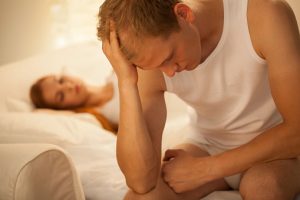 Depression, sleep apnea and sleep quality have been found to increase the risk of erectile dysfunction. Sleep apnea is a condition where a person may stop breathing throughout the night and be abruptly awakened to regain their breath. This condition can contribute to numerous health concerns, including diabetes and hypertension. Furthermore, sleep apnea can impair sleep, which is also vital for overall good health.
Depression, sleep apnea and sleep quality have been found to increase the risk of erectile dysfunction. Sleep apnea is a condition where a person may stop breathing throughout the night and be abruptly awakened to regain their breath. This condition can contribute to numerous health concerns, including diabetes and hypertension. Furthermore, sleep apnea can impair sleep, which is also vital for overall good health.
Erectile dysfunction is a common problem that affects men. It results in a lack of sexual function and has been tied with sleep apnea. When men sleep testosterone is being produced but in sleep apnea patients this does not occur. The lack of oxygen brought on by sleep apnea halts the production of testosterone, which in turn can contribute to erectile dysfunction.
Depression and poor sleep with sleep apnea increases erectile dysfunction
Advertisement
 In the latest research 713 patients with depressive symptoms and sleep problems were shown to have erectile dysfunction as well. The findings of the study suggest that erectile dysfunction may be improved if depressive symptoms are treated along with sleep apnea.
In the latest research 713 patients with depressive symptoms and sleep problems were shown to have erectile dysfunction as well. The findings of the study suggest that erectile dysfunction may be improved if depressive symptoms are treated along with sleep apnea.
Dr. Hyun-Woo Shin, co-author of The Journal of Sexual Medicine study, said, “It is important that physicians ask male obstructive sleep apnea patients if they have any erectile dysfunction. If yes, any psychological problems including depression should be considered.”
Erectile dysfunction in patients with sleep apnea
In an alternative study published in PLOS ONE researchers found higher incidences of erectile dysfunction among those with sleep apnea. For the study, 4,835 sleep apnea patients were matched with 145,050 control subjects. Researchers found that incidences of erectile dysfunction were higher among those with sleep apnea compared to the control counterparts.
Researchers determined that having sleep apnea could increase a male’s risk of developing erectile dysfunction after accounting for age, residency, income level and comorbidities. The larger-scale study is in line with previous, smaller studies that have been conducted.
Researchers suggest that doctors and clinicians need to pay closer attention to sleep apnea as a plausible cause for erectile dysfunction when treating men with the sexual function disorder.
Sleep disorders and sexual health
 Men aren’t the only ones who are affected sexually when it comes to lack of sleep. Women, too, can suffer from sexual disorders based on poor sleep quality. Although the research isn’t as mounting to support sexual dysfunction in women in regards to sleep, in comparison to men an estimated 43 percent of women report experiencing a sexual problem.
Men aren’t the only ones who are affected sexually when it comes to lack of sleep. Women, too, can suffer from sexual disorders based on poor sleep quality. Although the research isn’t as mounting to support sexual dysfunction in women in regards to sleep, in comparison to men an estimated 43 percent of women report experiencing a sexual problem.
There are two assessment tools available to determine women’s sexual function and pleasure. The first is known as the Female Sexual Function Index, which is comprised of 19 questions to measure sexual function. It measures such criteria as arousal, orgasm, pain and overall satisfaction. The other assessment tool is known as the Female Sexual Distress Scale, which is a questionnaire that measures distress linked to sexual dysfunction.
In a study of 80 women with sleep apnea and 240 women without, each of the women filled out both questionnaires. When results were compared between the two groups sexual dysfunction was found to be higher in the sleep apnea group than those without the condition. Furthermore, the more severe the sleep apnea was, the worse the sexual dysfunction was.
There have been other studies that uncovered similar results, such as the one from a Turkish university that found women with sleep apnea had reduced sexual desire, lubrication, orgasm, and diminished quality of partner relationships.
As you can see, sleep apnea is a common thread between both men and women when it comes to sexual function.
Depression and other risk factors for erectile dysfunction (ED)
Aside from poor sleep quality and sleep apnea, there are other risk factors that can contribute to erectile dysfunction. Below are some of the factors hindering your sexual function.
- Performance anxiety – if an erection ever wasn’t achieved in the past – for whatever reason – a man may have future anxieties and won’t achieve one again. Anxiety in itself can contribute to erectile dysfunction.
- Depression – depression is linked with feelings of hopelessness, sadness and fatigue, to name a few symptoms. All of these symptoms can contribute to impotence.
- Abuse of drugs – whether it’s alcohol, illicit drugs, or even over-the-counter, drugs can interfere with an erection.
- Cardiac-related condition – to achieve an erection or even orgasm you need blood flow. If a person has cardiac problems, which prevent or slow down blood flow to the appropriate parts of the body, achieving an erection or even an orgasm can seem near impossible.
- Neurological and nerve disorders – nerve conditions affect the way the brain receives signals, thus lack of signals could inhibit the ability to have an erection.
- Aging – getting older creates changes to the body including the ability to have an erection.
- Diabetes – it is well studied that erectile dysfunction affects men with diabetes. Diabetes contributes to narrowing of the arteries, which limits the blood flow necessary for sexual function.
- Smoking – along with its many other health complications, smoking can cause erectile dysfunction.
- Low testosterone levels – as mentioned, testosterone levels play an important role in sexual health.
If you’re concerned with your erectile dysfunction, speak with your doctor about what can be done. In many cases there is an underlying condition causing it, so better management of the condition could improve erectile dysfunction.
Related Reading:
Erectile dysfunction a marker of undiagnosed diabetes in middle-aged men
Erectile dysfunction doesn’t solely affect sexual ability; new research suggests it can be a marker of undiagnosed diabetes in middle-aged men. Published in the Annals of Family Medicine research shows that men suffering with erectile dysfunction should also undergo testing for diabetes. Continue reading…
Advertisement
Is gout the cause of erectile dysfunction
Have your bedroom sessions been a little lackluster as you age? And no, we’re not talking about your ability to sleep. We’re referring to your ability to still get hot and heavy with your spouse or partner. Continue reading…
Sources:
http://www.eurekalert.org/pub_releases/2015
http://journals.plos.org/plosone/article?id=10.1371/journal
http://www.simplesleepservices.com/bedroom-troubles-sleep-apnea-may-be-the-cause
http://www.healthline.com/health/erectile-dysfunction/common-causes-impotence
http://www.medicinenet.com/erectile_dysfunction_ed_impotence
